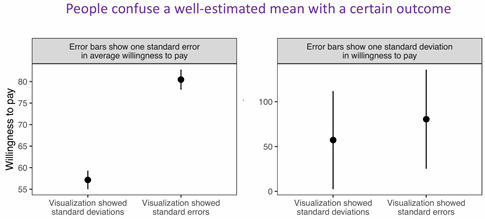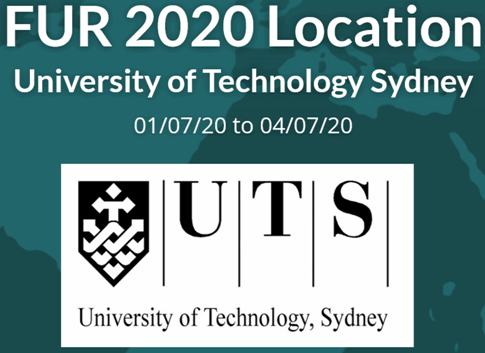Filed in
Jobs
 Subscribe
Subscribe to Decision Science News by Email (one email per week, easy unsubscribe)
APPLICATION DEADLINE OCTOBER 8, 2021


Position Title: Assistant Professor of Operations, Information & Decisions (Tenure Track)
The Operations, Information and Decisions Department at the Wharton School is seeking applicants for a full-time, tenure-track, Assistant Professor faculty position in all our areas of interest, but with a particular need in operations management. Our faculty is comprised of scholars with a diverse set of backgrounds and interests, and we encourage applicants with degrees in a business discipline, engineering, or social sciences, among others. Applicants must have a Ph.D. (expected completion by June 30, 2023 is acceptable) from an accredited institution and have an outstanding research record or potential in one of our fields of interest. The appointment is expected to begin July 1, 2022.
More information about the Department is available at: https://oid.wharton.upenn.edu/index.cfm <https://oid.wharton.upenn.edu/index.cfm>
Interested individuals should complete and submit an online application via our secure website, and must include:
- A curriculum vitae
- A job market paper
- Three letters of recommendation submitted by references
To apply, please visit this web site: http://apply.interfolio.com/91660
Further materials, including (additional) papers and letters of recommendation, will be requested as needed.
To ensure full consideration, materials should be received by October 8, 2021.
Contact:
OID Department
The Wharton School
University of Pennsylvania 3730 Walnut Street
500 Jon M. Huntsman Hall
Philadelphia, PA 19104-6340
oidrecruiting@wharton.upenn.edu
The University of Pennsylvania is an affirmative action/equal opportunity employer. All qualified applicants will receive consideration for employment and will not be discriminated against on the basis of race, color, religion, sex, national origin, disability status, protected veteran status, or any other characteristic protected by law.
Filed in
Jobs
 Subscribe
Subscribe to Decision Science News by Email (one email per week, easy unsubscribe)
2021 FACULTY POSITION IN PSYCHOLOGY


The Department of Psychology at the University of Michigan, Ann Arbor, invites applications for a faculty position (Assistant Professor) in human cognition, with a focus on decision making (broadly construed) and computational modeling. Preference will be given to individuals who combine theoretical and empirical approaches (which may include behavioral or combined behavioral and physiological measures) in their program of research. This is a tenure-track academic year appointment. The expected start date is August 29, 2022. Successful candidates must have a Ph.D. in a relevant discipline by the time the position starts, and a commitment to undergraduate and graduate teaching. New faculty hired at the Assistant Professor level will be expected to establish an independent research program.
Please submit a cover letter, curriculum vitae, a statement of current and future research plans, a statement of teaching philosophy and experience, and evidence of teaching excellence (if available). The University of Michigan and the Department of Psychology value contributions to diversity, equity, and inclusion (https://diversity.umich.edu/). Please include with your application a separate diversity statement that describes how your research, teaching, and/or service in the past, present, and/or future embraces these values and might further DEI aims.
To apply, submit materials by October 1 at the following site: http://apply.interfolio.com/89350
Applicants should also request at least three letters of recommendation to be sent by referees by October 1. Instructions concerning letters are on the application site. For inquiries about the position, please contact the search committee chair, Rick Lewis (psych.chair@umich.edu).
Applicants are also encouraged to consider applying to the College of Literature, Science, and the Arts’ Collegiate Fellowship Program, which provides for a fellowship period before transitioning onto the tenure track (for more information: https://lsa.umich.edu/ncid/fellowships-awards/lsa-collegiate-postdoctoral-fellowship.html).
The University of Michigan is an equal opportunity/affirmative action employer. Qualified women and minority candidates are encouraged to apply. The University is supportive of the needs of dual-career couples.
Filed in
SJDM
 Subscribe
Subscribe to Decision Science News by Email (one email per week, easy unsubscribe)
SOCIETY FOR JUDGMENT AND DECISION MAKING NEWSLETTER

The quarterly Society for Judgment and Decision Making newsletter is available for download from the SJDM site:
http://sjdm.org/newsletters/
Remember, the conference submission deadline is July 1, 2021 (4 days from now)! See http://sjdm.org/ for more information.
Dan Goldstein
SJDM newsletter editor
Filed in
SJDM
 Subscribe
Subscribe to Decision Science News by Email (one email per week, easy unsubscribe)
SOCIETY FOR JUDGMENT AND DECISION MAKING NEWSLETTER

The quarterly Society for Judgment and Decision Making newsletter is available for download from the SJDM site:
http://sjdm.org/newsletters/
It features announcements, conferences, jobs.
Enjoy!
Dan Goldstein
SJDM Newsletter Editor
Filed in
SJDM
 Subscribe
Subscribe to Decision Science News by Email (one email per week, easy unsubscribe)
SOCIETY FOR JUDGMENT AND DECISION MAKING NEWSLETTER

The quarterly Society for Judgment and Decision Making newsletter is available for download from the SJDM site:
http://sjdm.org/newsletters/
It features announcements, conferences, jobs.
Happy New Year!
Dan Goldstein
SJDM Newsletter Editor
SOCIETY FOR JUDGMENT AND DECISION MAKING NEWSLETTER

The quarterly Society for Judgment and Decision Making newsletter is available for download from the SJDM site:
http://sjdm.org/newsletters/
It features announcements, conferences, jobs, and the 2020 Conference program.
Dan Goldstein
SJDM Newsletter Editor
Filed in
SJDM
 Subscribe
Subscribe to Decision Science News by Email (one email per week, easy unsubscribe)
SOCIETY FOR JUDGMENT AND DECISION MAKING NEWSLETTER

The quarterly Society for Judgment and Decision Making newsletter is available for download from the SJDM site:
http://sjdm.org/newsletters/
This issue includes a section and Presidential letter on diversity and inclusion in SJDM.
Dan Goldstein
SJDM Newsletter Editor
Filed in
Conferences
 Subscribe
Subscribe to Decision Science News by Email (one email per week, easy unsubscribe)
DEADLINE FOR ORAL PRESENTATIONS: FEB 15, 2020

On June 5-6 2020, Temple University will host the 10th Annual Interdisciplinary Symposium on Decision Neuroscience (ISDN) in Philadelphia, PA. This symposium is unique in that it brings together a range of constituencies involved in the use of neuroscience techniques to understand consumer decision making – world renowned academics, neuroscience research companies, marketing research executives and industry leaders. It offers an opportunity to learn, present and discuss the latest breakthroughs on using neuroscientific and physiological measures to inform decision making in individuals, groups, societies, organizations, and markets. For more information, please visit our website https://www.fox.temple.edu/conferences/isdn2020/ or contact us at isdn20@temple.edu
ABSTRACT SUBMISSION
Deadline for Oral presentations: February 15, 2020 Late-breaking poster presentations will be accepted for review until May 10, 2020 (11:59 p.m. EDT).
The organizing committee will select papers for presentation at the symposium based on extended abstracts (one page, single spaced). The abstract should state the study’s objectives, briefly describe the methods, summarize the results and state the conclusions. The body of the abstract should be no longer than 2,300 characters, including punctuation (not spaces). *All abstracts should be emailed to isdn20@temple.edu https://www.fox.temple.edu/conferences/isdn2020/call-for-papers/isdn2020 by 11:59 pm EST on February 15, 2020*. Decisions about the abstracts will be communicated to the authors by March 15, 2020. Selected papers would ideally not be published prior to the symposium.
Selections will be based on quality, relevance to decision neuroscience, and contribution to breadth of topics and interdisciplinary approaches and relevance for industry. (Note that all abstracts do not necessarily require neuroscience data but should have the potential to encourage discussions about a possible role for neuroscience.) We consider not just the individual merits of the papers, but how they complement other submissions from scholars in different fields to form a cohesive session. The organizers will invite authors of the abstracts not selected for talks to present their work as posters. Preference will also be given to new speakers.
Limited travel awards will be available to offset expenses for students and junior faculty. More details about the conference, registration, invited speakers, travel awards and accommodations will be updated regularly on our website https://www.fox.temple.edu/conferences/isdn2020/. If you have any additional questions, please do not hesitate to contact us by email:
isdn20@temple.edu.
SPECIAL PRE-CONFERENCE ON SOCIAL INFLUENCES ON LEARNING
Chairs: Johanna Jarcho and Vishnu Murty, College of Liberal Arts, Temple University
This year’s conference will feature a special pre-conference on June 4 examining Social Influences on Learning. Humans are experts at navigating complex social environments. These processes rely on the ability to integrate prior experiences of social exchanges with current information to make adaptive decisions. This pre-conference will focus on the behavioral and neural mechanisms that guide our ability to extract and store information from social interactions and use this information to support concurrent behavior. The pre-conference will provide a unique opportunity to examine social learning through the lens of multiple academic disciplines including cognitive neuroscience, social psychology, marketing, and decision making. There is no fee to attend the pre-conference as long as you are registered for the main conference. This half-day session will consist of three invited talks, three accepted talks and a poster session. If you would like to present in this pre-conference, please submit your abstracts (in the same format as the main conference) to sociallearning.ISDN2020@gmail.com by 11:59 pm EST on Mar 31, 2020. You may submit the same abstract to both the main conference and pre-conference, but they must be emailed independently for consideration in both.
Organizing Committee: Crystal Reeck – Temple University; Vinod Venkatraman Temple University
Advisory Committee: Carolyn Yoon – University of Michigan; Uma Karmarkar – University of California San Diego; Angelika Dimoka – University of Houston; Drazen Prelec – MIT
STANDARD ERRORS VS STANDARD DEVIATIONS

Click to enlarge
There’s an ancient haiku that goes:
People confuse a
well-estimated mean with
a certain outcome
Ok, that’s not true.
But Jake Hofman, Dan Goldstein, and Jessica Hullman have a new paper (recently accepted at CHI 2020) about this.
They bet you’ll think the results of their paper look are more impressive if you look at the plot on the left pane than if you look at the one on the right.
At least that what the results of their paper say.
Preprint here: http://bit.ly/353kBtj
There’s only a limited number of PDFs available, so grab one today.
Ok, that’s not true either.
Special thanks to @iamwillcai and @_JenAllen for their RAship on this!
Filed in
Conferences
 Subscribe
Subscribe to Decision Science News by Email (one email per week, easy unsubscribe)
ABSTRACT SUBMISSION DEADLINE JANUARY 15, 2020

The Foundations of Utility and Risk (FUR) Conference will, for the first time, take place in the Asia Pacific area in 2020. We invite all Economists and other Social Scientists interested in the study of Decision-making to submit papers to the conference.
Since 1982, FUR gathers every two years researchers in Economics, Psychology and other Behavioural Sciences interested in the study of Decision-making. FUR 2020 will take place in Sydney, at the University of Technology Sydney from Wednesday, 1st July to the Saturday, 4th July. We have organised a great program for participants to make the best of a visit to Australia experience.
An impressive list of Keynote Speakers:
Paul Glimcher (NYU)
Muriel Niederle (Stanford University)
John Quah (National University of Singapore)
John Quiggin (University of Queensland)
Larry Samuelson (Yale University)
Leeat Yariv (Princeton University)
A pre-conference workshop (29th – 30th June) on the Gold Coast organised by Griffith University on the theme: “Decision process measures in Decision Theory and Game Theory”: https://www.furconference.org/workshop/
And a conference dinner at the Opera House!
The deadline to submit an abstract is the 15th January for a decision by the 15th February. If you need an earlier decision to organise your travel early, you are welcome to submit earlier and indicate your preference for an early decision.
You will find all the information about the conference as well as the submission page here: https://www.furconference.org/
The advertising of the conference can be found on Inomics, please feel free to forward this information to other researchers potentially interested: https://inomics.com/conference/fur-foundations-of-risk-and-utility-conference-2020-1410571
Registrations
Registration for the Conference will open on the 1st March 2020 and will be available via a link on the FUR Conference website. The registration deadline will be the 1st May 2020 (US$300 (full) & US$150 (student)) with the late registration deadline being the 1st June 2020 (US$400 (full) & US$200 (student).











